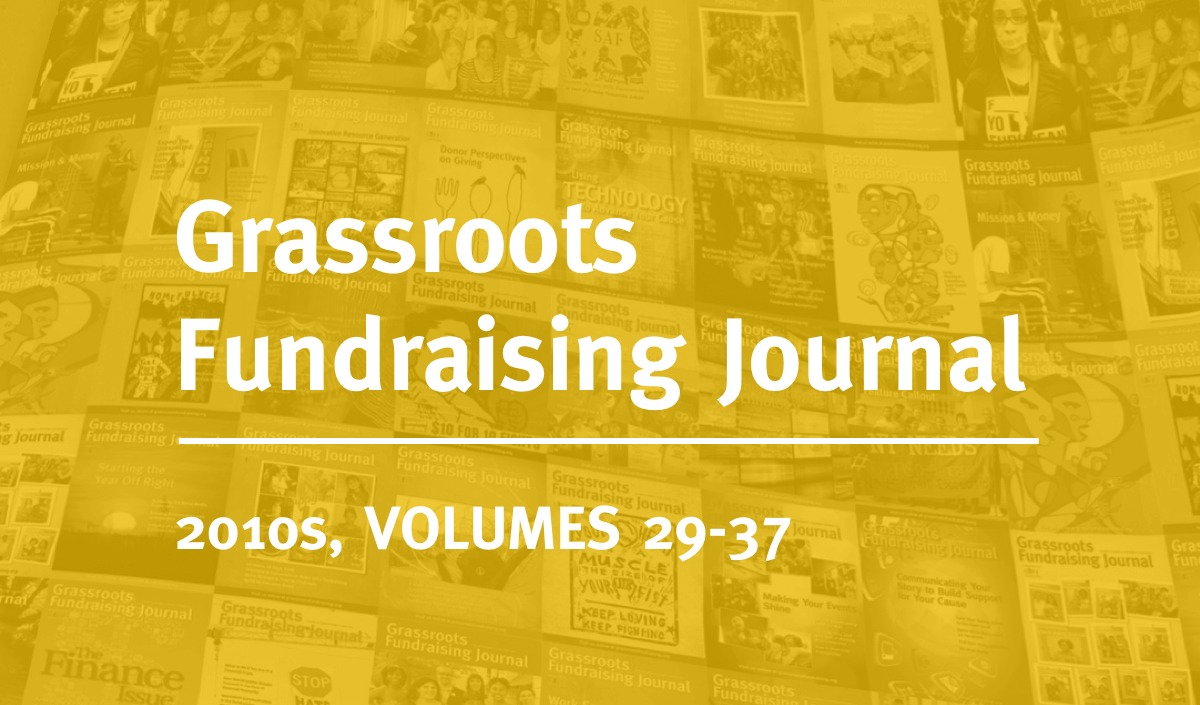At NPQ, respect for our readers’ work, intelligence, and insight is core to all we do. And, indeed, research says that the nonprofit workforce is motivated differently than the other two sectors. So, we thought we would go out and ask them. The result is this special online series that will run every workday for the next month, illuminating what motivates each of twenty profiled workers.
We think much of what they say will resonate with you, but this is also who NPQ serves each day. They are why our work is so important, and NPQ can’t exist without your contributions.

I am currently an Institute Fellow at the Urban Institute. I stepped down from directing the Center on Nonprofits and Philanthropy, which I created in 1996 and ran for almost 20 years. I’m also the Waldemar A. Nielsen Chair in Philanthropy at Georgetown University, where I conduct research and teach graduate students in the McCourt School of Public Policy.
Why NPQ serves Elizabeth proudly
Sign up for our free newsletters
Subscribe to NPQ's newsletters to have our top stories delivered directly to your inbox.
By signing up, you agree to our privacy policy and terms of use, and to receive messages from NPQ and our partners.
The language of the nonprofit sector hadn’t been invented when I was in college. I’m a political scientist by training. I didn’t even know what a foundation was at that point. So, my early introductions came through my volunteering in places like the PTA, and the connections I made there. Then I started working at the Council on Foundations, learning on the job, and for 16 years I was one of the pioneers in developing research on the nonprofit sector. It was 1979, and it was on the cusp of the creation of independent sector. This is an unrecognized, below-the-radar aspect of a democratic society that nobody knows about, and it’s important and it makes a difference in our democracy, so, I was caught up in the need for research, the need to make the sector visible. It was quite engaging.
I’m privileged in being able to use my skills for something that matters and I sort of imbibe the values of the nonprofit sector.
As a political scientist, I really value democracy, integrity, and civic engagement, and it seems to me that these are the organizations that make a difference in all those areas. It’s not about the money, although, obviously, if you work in nonprofit you work very hard to raise the money through grants and contracts and income. It’s hard work; it’s very hard work, and I can see why people get frustrated and want nonprofits to operate more like businesses, but you know, that’s not always the best way.
I think the general public knows groups like the American Red Cross, and they may know the ALS Ice Bucket Challenge; I think there’s greater understanding now than when we started, but I still think that if you ask somebody what a foundation is, probably two or three people out of 10 would know what a foundation or a nonprofit organization is – even people who work in nonprofits sometimes don’t know they’re nonprofit. So, I think there’s not great depth. You know, we’ve made a lot of progress. We have a lot of books out there. We have more academics doing research. We have a lot better coverage in the media than we did back then. But, I think that there are a lot of myths out there still. If you ask some people they would tell you that nonprofits are run by volunteers, who don’t get paid, and they wonder why we have to pay for infrastructure or operating costs or administration. So, we’ve done part of the job, but it’s by no means general knowledge for a lot of folks.
Why Elizabeth values NPQ
I look at your online newswire every day and I subscribe to your magazine. What I like about it is, especially online, getting sort of the news that I can peruse and know that there’s something interesting and different keeps me going. It helps me to understand what’s going on and I’m a big picture person so I like to know about things from various angles and various parts of the sector and, of course, NPQ does that. It’s also policy-aware, and its orientation is to help nonprofits do their jobs better and to raise up the issues, you know, warts and all, and we need to know the warts and all, the bad things that are going on. We can’t all be cheerleaders all the time; we’ve got to understand the good, the bad, and the ugly while working to make things better.












